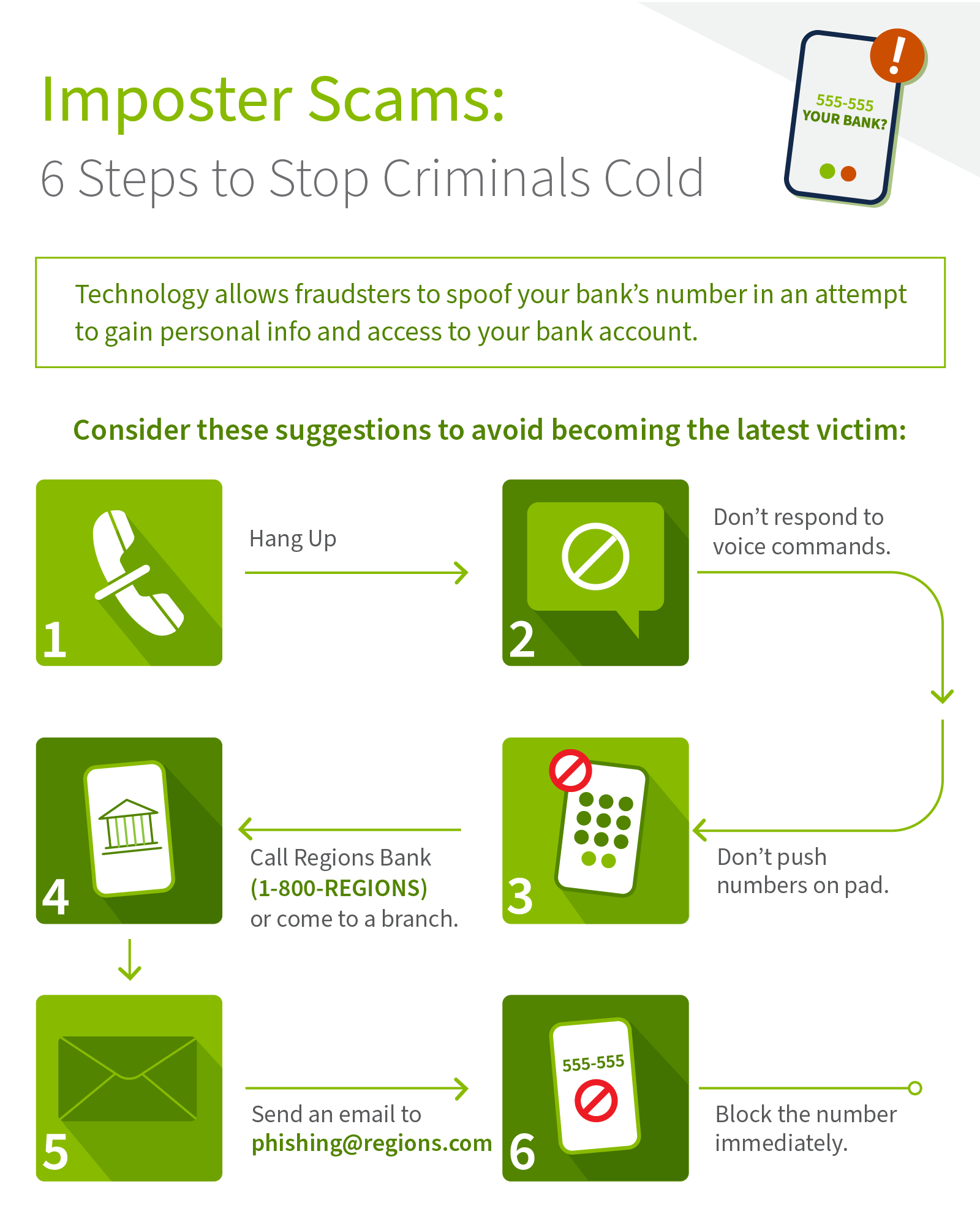Your cell phone rings. The caller ID says the call is coming from Regions Bank – your bank.
This must be important. So, you answer.
An automated voice tells you there’s been a fraudulent wire transfer and you need to call a 1-800 number immediately. Or, in another scenario, you’re prompted to push 1 if you initiated the transfer and 2 if you didn’t.
But your next step should be simple: hang up. And call your Regions banker.
We’ve just shown you the latest way fraudsters are trying to take advantage of people through imposter scams. Our focus at Regions is keeping our customers safe because these scams are fertile ground for criminals. Yet, according to the Federal Trade Commission, imposter scams cover far more than fake bankers. Among the hottest imposter scams are fake calls from the Social Security Administration, the IRS and, yes, the very personal romantic scammer.
The key is awareness. We want to educate our customers that this is happening because that awareness is the best prevention of all.
Richard Strickland, Corporate Security Field Investigator
Richard Strickland spent 25 years with the Pelham (Alabama) Police Department – the last 11 years as a lead investigator. And, for the last six years he has been a vital part of Regions Bank’s Corporate Security team helping keep customers safe as a field investigator.
“We’ve seen a pretty substantial increase of these type of imposter scams over the last couple of months,” Strickland said. “In fact, Corporate Security has received a lot of calls from our branches advising us that customers are receiving vishing calls allegedly from Regions Bank. I received one last night.
“Unfortunately, this is happening to all financial institutions and their customers.”
Improved technology, Strickland said, only makes it easier for bad actors. They can spoof a bank’s number and, using software, send out hundreds of messages at a time within a specific area code.
But the response can stop them cold.

“The bottom line: They want your personal information and access to your account,” Strickland said. “But we’re never going to ask for your full name, date of birth, Social Security number or online credentials over the phone. We already have that information.”
Like with any type of fraud, the best way to stay safe is to know the threat ahead of time.
“The key is awareness,” Strickland said. “We want to educate our customers that this is happening because that awareness is the best prevention of all.”
The information presented is general in nature and should not be considered, legal, accounting or tax advice. Regions reminds its customers that they should be vigilant about fraud and security and that they are responsible for taking action to protect their computer systems. Fraud prevention requires a continuous review of your policies and practices, as the threat evolves daily. There is no guarantee that all fraudulent transactions will be prevented or that related financial losses will not occur. Visit regions.com/STOPFRAUD or speak with your Banker for further information on how you can help prevent fraud.